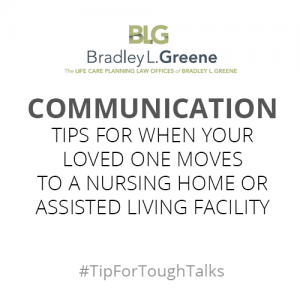Protecting Seniors from an Increase in Financial Scams
According to a MetLife survey, crimes against the elderly skyrocketed in the last year, and seniors lost $3 billion to criminals through home repair scams, investment scams, and other cons targeting older people. Senior-citizens are particularly at risk for financial scams, and the methods criminals use to target victims are becoming more and more sophisticated. The Consumer Financial Protection Bureau has even established guidelines encouraging banks to institute employee training programs and install software geared toward identifying risk and protecting seniors. This article outlines what Cleveland area banks are doing to comply.
Information is power. So the team at Bradley Greene, Elder Law is committed to sharing current news and resources with our clients and family members to help you avoid some of the most common ways that seniors are targeted. Please don’t hesitate to contact our offices directly if you suspect your loved one has become victim to any of the following crimes or any form of financial abuse:
IRS scams
From email scams leading employers to accidentally release w-2 information to fraudsters and phone call scams that threaten legal action if your “IRS debts” are not immediately paid – please keep in mind that the Internal Revenue Service will never conduct initial contact by phone or email and would never unexpectedly threaten imprisonment. If you receive a surprise phone call (or email message) claiming to be from the IRS, hang up (do not reply) and call your local IRS office if you are still concerned about the issue.
Grandparent scams
The victim receives an upsetting phone call from someone claiming to be a grandchild stranded overseas, asking for money to safely get home. Often the caller sounds young, upset and uses endearing statements such as, “Hi Grandma, please don’t tell my parents.” Well-meaning grandparents have lost thousands of dollars to scammers through hasty wire transfers, so please be aware and be cautious about such call. When in doubt, check it out. Ask the caller a question that only your family member would know the answer to.
Identity Theft
This occurs when a criminal uses someone’s personal information such as account numbers, credit cards or social security number to apply for credit or purchase goods fraudulently. Whether you’re trusting a caregiver who provides services in your home or a friendly neighbor, it’s important to never give out this type of personal information unless necessary.
To Learn More
The Ohio Attorney General’s Office provides a list of other common scams affecting seniors and additional information for how to protect yourself through their website here. You can also request a copy of their scam resource packet or report a potential scam by contacting the Ohio Attorney General’s Office at 800-282- 0515.



